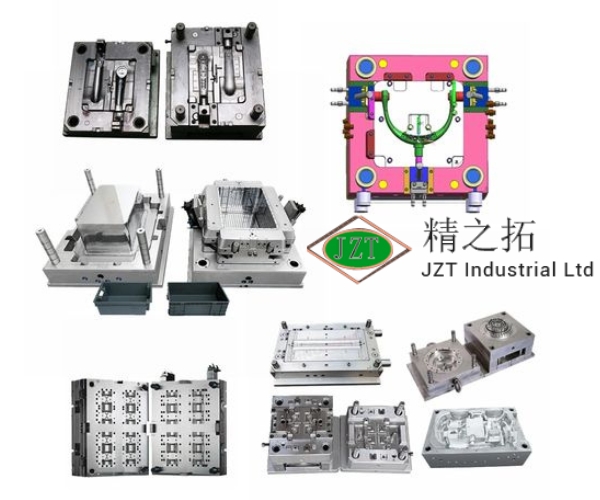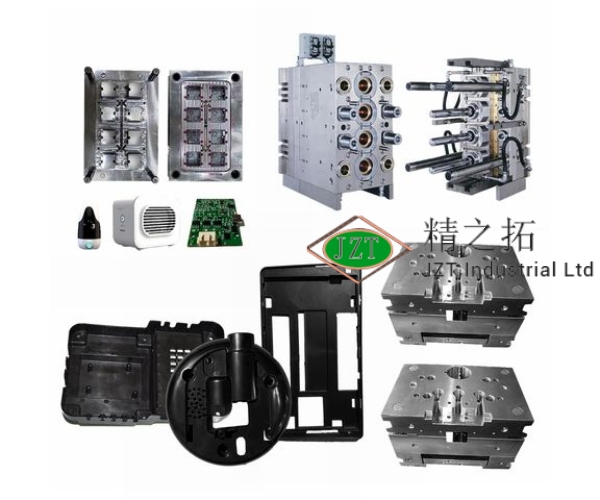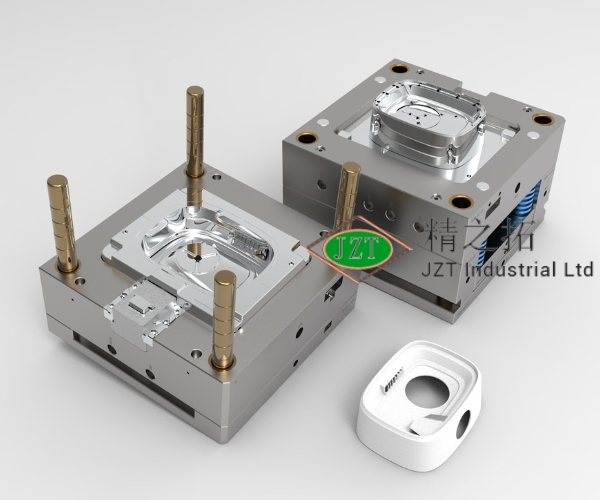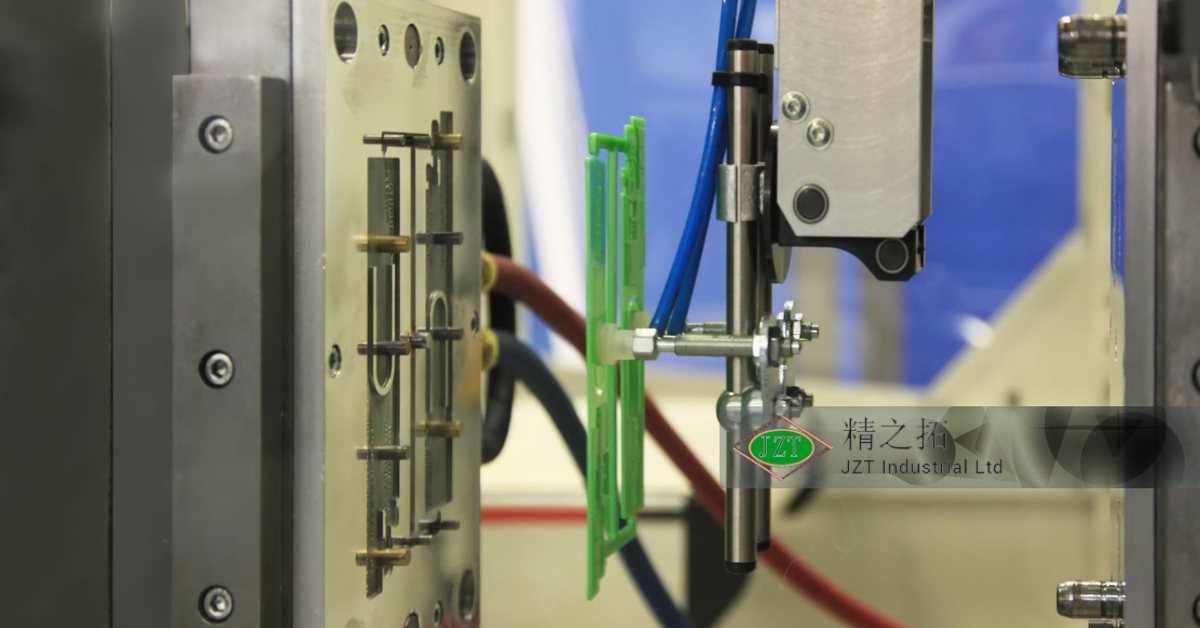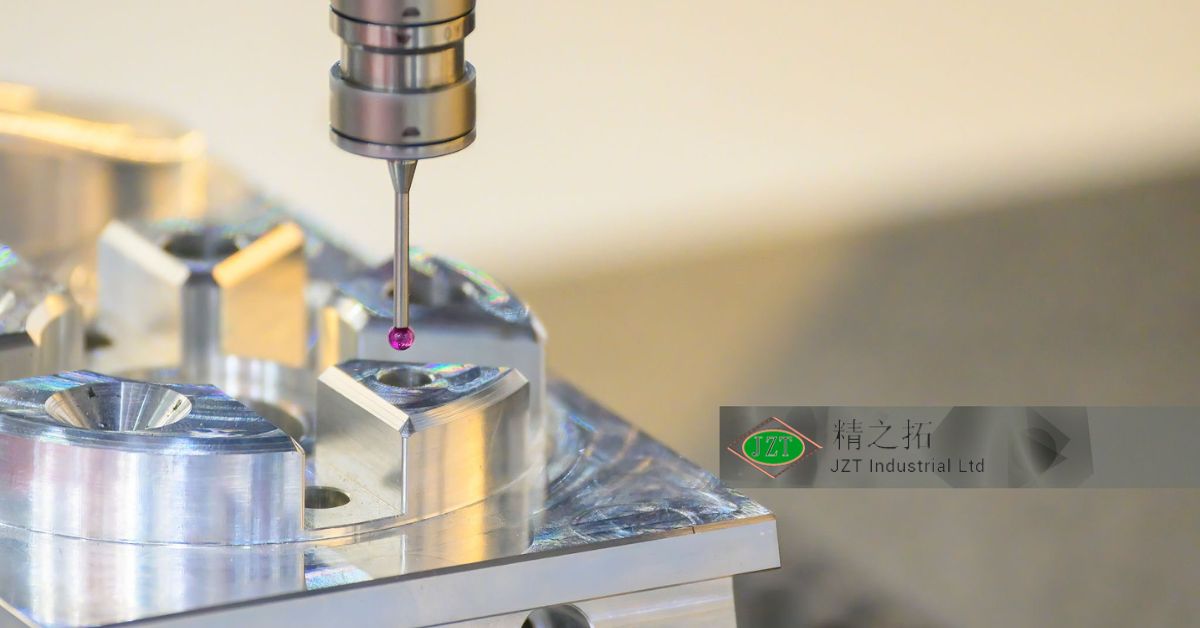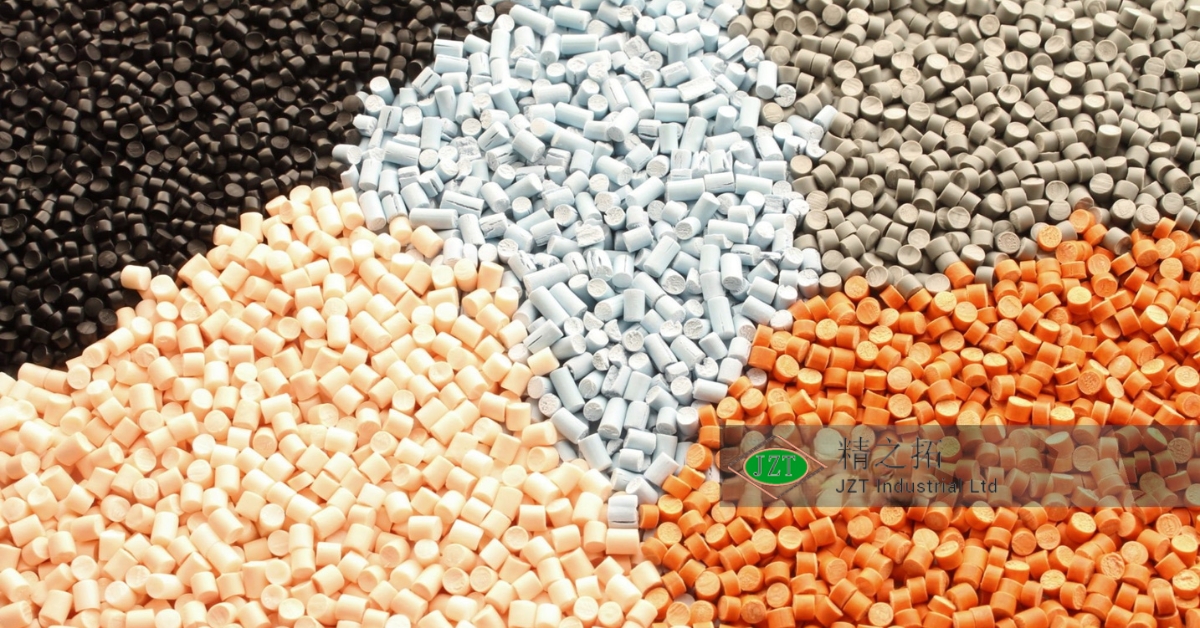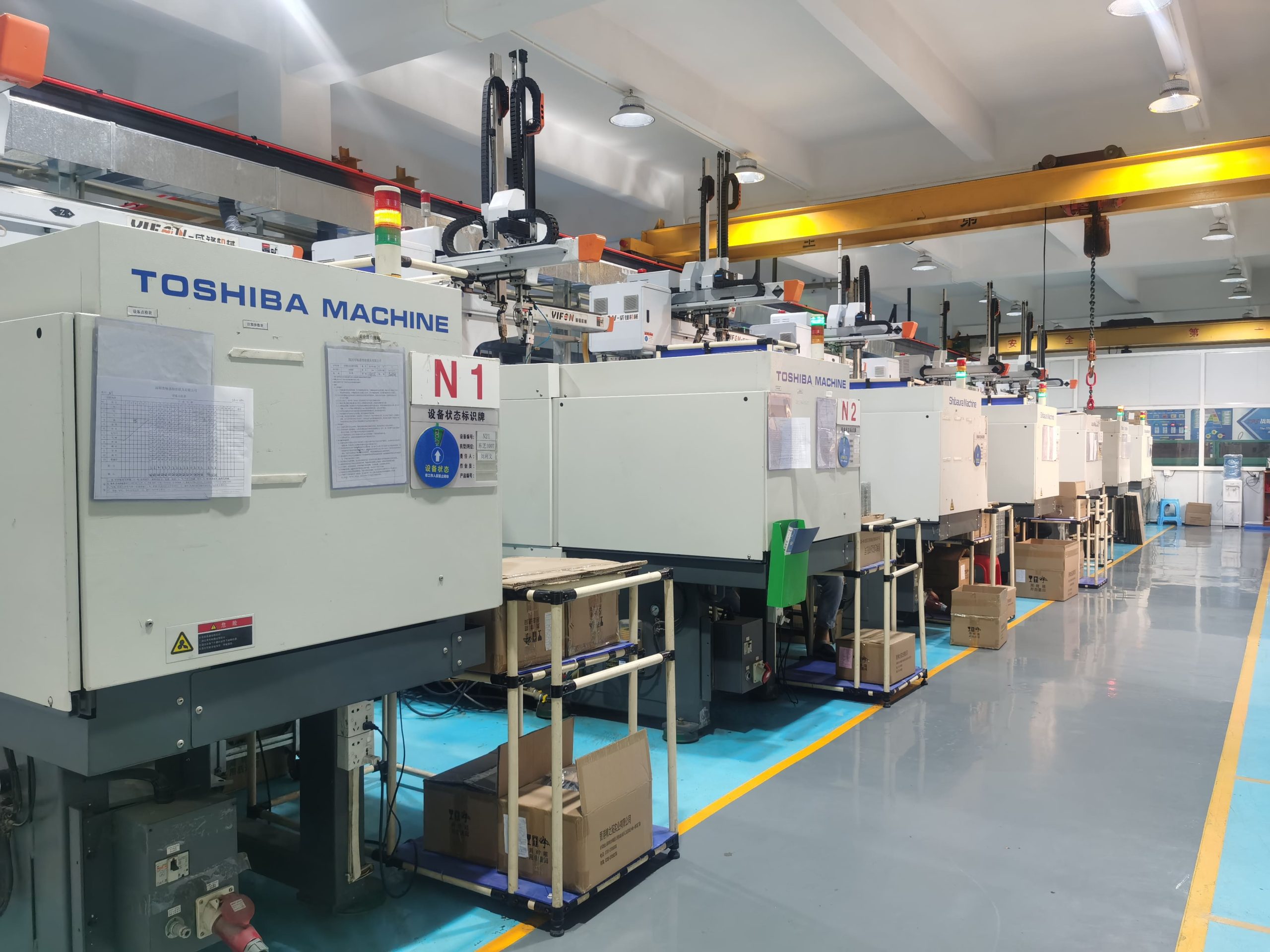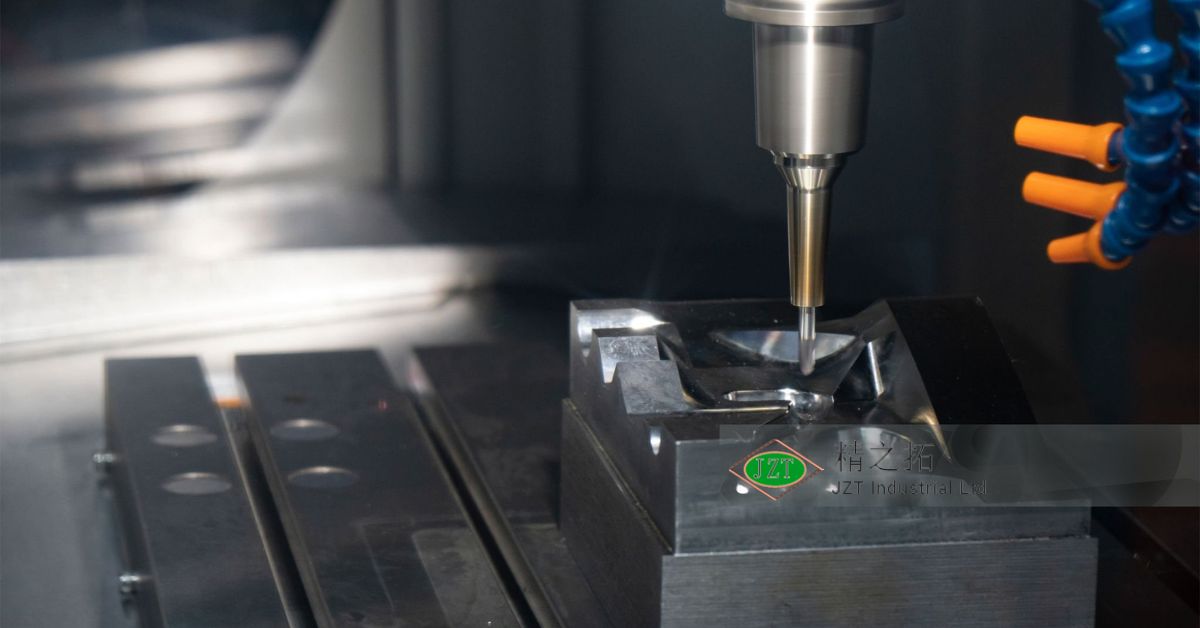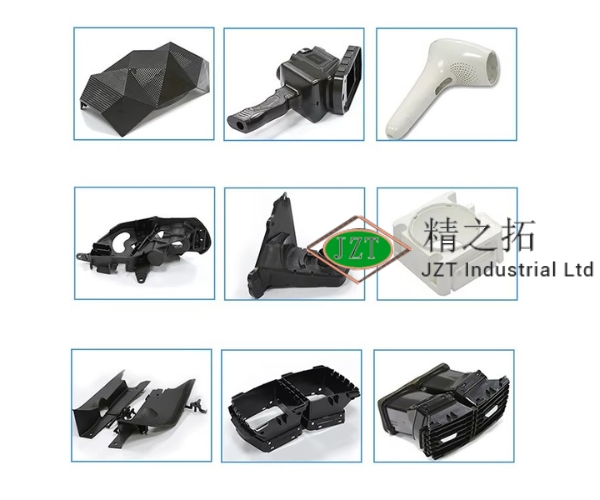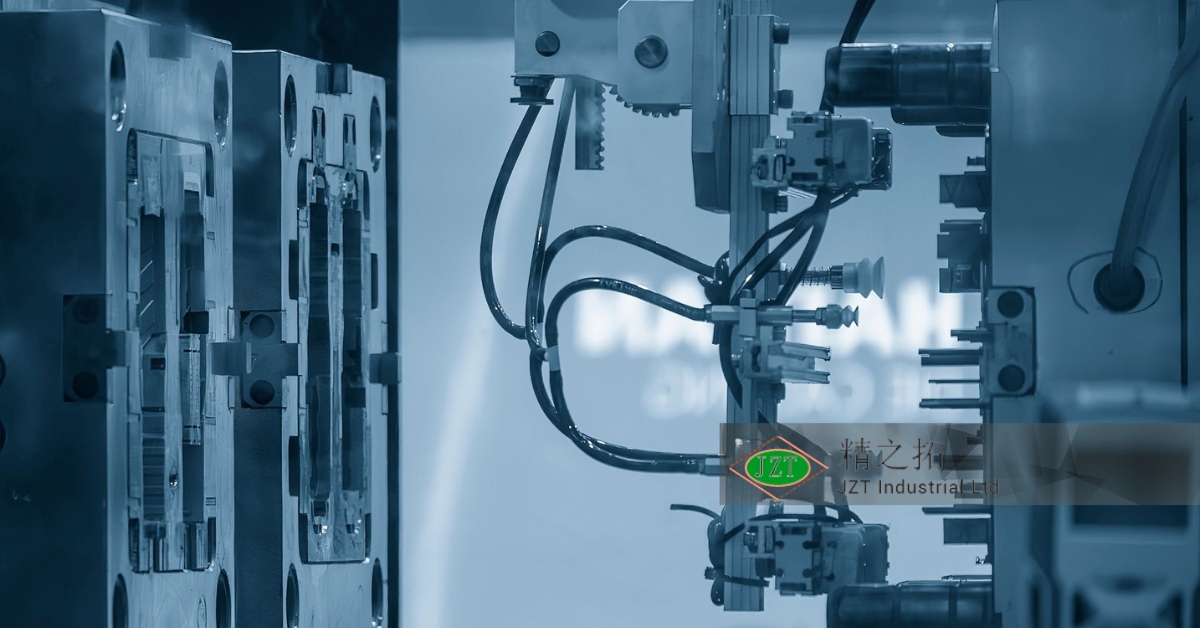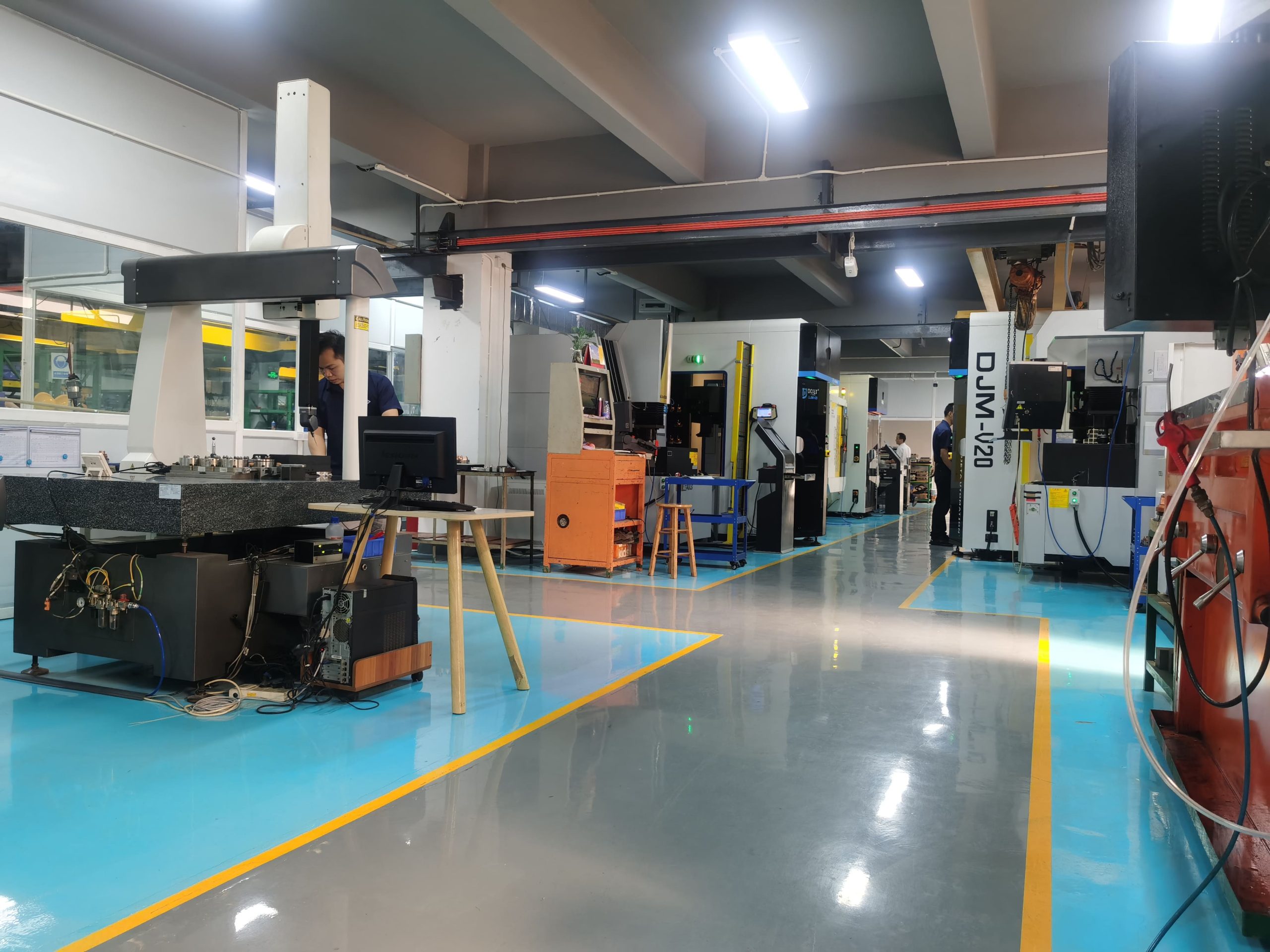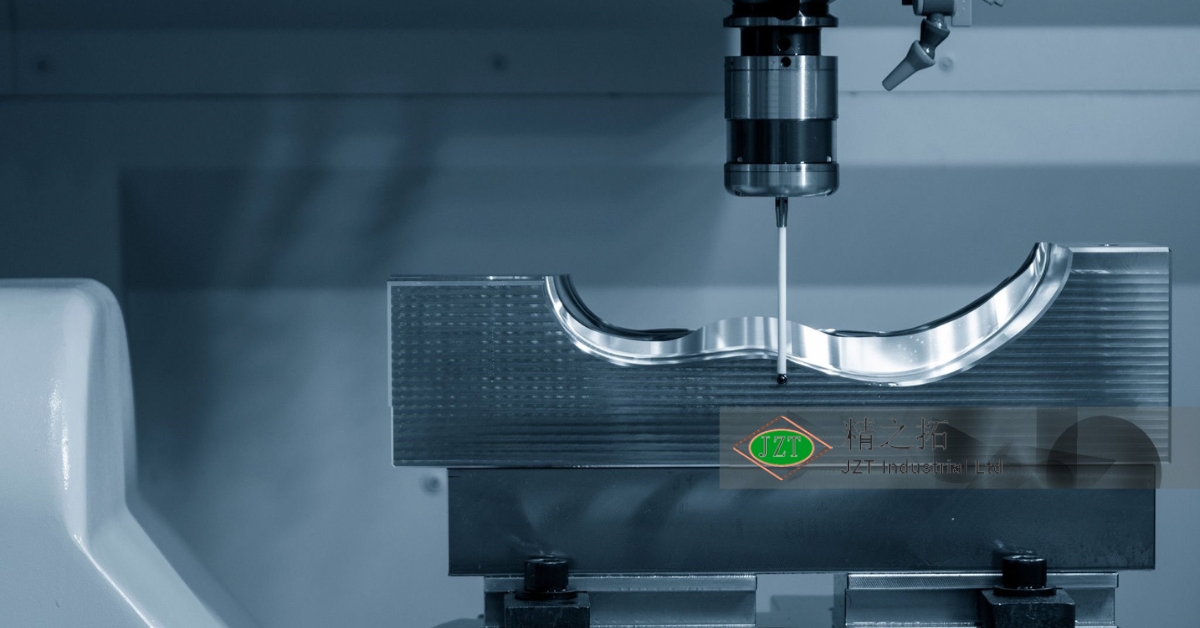Introduction
Choosing the right plastic injection mold supplier is a crucial step for any business that relies on high-quality, custom plastic parts. The supplier you select directly impacts the quality of your products, production efficiency, and overall costs. Whether you are in the automotive, healthcare, electronics, or consumer goods industry, finding a reliable supplier who can deliver consistent quality and meet your production needs is essential for maintaining a competitive edge.
A reputable plastic injection mold supplier offers more than just mold production; they provide technical expertise, efficient production capabilities, and a commitment to quality. However, with so many options available, it can be challenging to identify the right supplier that aligns with your business goals. This guide explores each stage of the selection process, from assessing the supplier’s qualifications and production capabilities to understanding cost considerations and quality control standards. With these insights, you can make an informed decision to support long-term business growth and product excellence.
Section 1: Understanding the Role of a Plastic Injection Mold Supplier
What Does a Plastic Injection Mold Supplier Do?
A plastic injection mold supplier is responsible for designing, creating, and delivering molds that allow businesses to produce custom plastic parts consistently and at scale. The supplier’s role goes beyond simply making molds; they ensure that each mold meets specific product and industry standards, which is essential for delivering parts with exact dimensions, smooth finishes, and the durability required for end-use applications.
The process begins with a detailed design phase, where the supplier works closely with the client to understand their requirements. This involves creating computer-aided designs (CAD) of the mold, which serve as the blueprint for the manufacturing phase. Many suppliers utilize advanced technology, such as computer-aided manufacturing (CAM) systems, to transform these designs into precise, high-quality molds. Reliable suppliers focus on each aspect of production, from design and materials to testing, ensuring that the final mold performs as expected and delivers uniform parts.
Importance of a Reliable Supplier in Manufacturing
Selecting a dependable plastic injection mold supplier has a profound effect on product quality, production consistency, and cost efficiency. A reliable supplier ensures that the molds produce parts that meet precise specifications, reducing the likelihood of defects and ensuring uniformity in every production cycle. This consistency is critical, particularly in industries like healthcare and automotive, where product reliability can have safety implications and directly impact brand reputation.
Beyond quality, a reliable supplier plays a key role in maintaining production schedules. By delivering molds on time and providing accurate lead times, they help avoid costly delays in manufacturing. Conversely, an unreliable supplier may cause production disruptions, leading to missed deadlines and additional expenses. Choosing a trusted supplier, therefore, safeguards your production timelines and supports long-term business continuity.
Key Differences Between Domestic and Overseas Suppliers
When deciding between a domestic or overseas plastic injection mold supplier, businesses must consider factors such as cost, communication, lead time, and regulatory knowledge. Domestic suppliers often provide benefits like easier communication, shorter lead times, and familiarity with local standards. Operating within the same time zone and language can streamline communications and reduce misunderstandings, which is valuable when discussing technical details or addressing urgent matters.
Overseas suppliers, however, may offer significant cost savings due to lower labor and overhead expenses, making them appealing for companies looking to reduce manufacturing costs. However, these savings come with potential challenges, such as extended shipping times, cultural differences, and additional quality control measures that may be required to ensure compliance with industry standards. Businesses need to balance the cost benefits with potential logistical complexities, as delays in shipment or quality discrepancies could impact production schedules and customer satisfaction.
Section 2: Evaluating Supplier Credentials and Experience
Key Qualifications and Certifications to Look For
Certifications are an essential factor when evaluating a plastic injection mold supplier, as they signal a commitment to quality, safety, and efficiency. The most widely recognized certification is ISO 9001, which sets standards for quality management systems. Suppliers with ISO 9001 certification demonstrate that they have a robust quality management process, minimizing errors and maximizing efficiency. For certain industries, additional certifications may be relevant, such as ISO 13485 for medical device manufacturing or IATF 16949 for automotive parts. These certifications ensure that the supplier understands and adheres to industry-specific regulations, providing an extra layer of confidence in the quality of their molds.
In addition to formal certifications, businesses should consider the supplier’s training programs, employee expertise, and safety protocols. Suppliers that invest in regular training for their employees and stay updated on the latest industry standards are better positioned to deliver consistent, high-quality products. Certifications combined with a proactive approach to quality improvement can give businesses confidence in the supplier’s capability to meet their production needs reliably.
Why Experience in Your Industry Matters
Experience in specific industries is a strong indicator that a supplier understands the unique requirements of your products and can anticipate potential challenges. A supplier with a track record in your industry is more likely to have developed specialized techniques and insights that improve the production of molds tailored to your needs. For instance, suppliers experienced in medical-grade plastic molding will know the strict sterilization and precision requirements needed for healthcare products, whereas those with automotive experience understand the durability and structural integrity needed for automotive components.
By choosing a supplier with industry-relevant experience, businesses can benefit from smoother project execution, reduced errors, and more efficient production. When vetting suppliers, ask about similar projects they have completed, request case studies, and inquire about any specific knowledge they have related to your industry’s standards. This background provides insight into the supplier’s ability to meet the demands of your industry and deliver high-quality custom plastic parts.
Requesting Case Studies and Client Testimonials
Client testimonials and case studies offer valuable insights into a supplier’s reliability, consistency, and quality. Testimonials from previous clients reveal the supplier’s strengths and weaknesses, as well as their level of customer service and responsiveness to client needs. Additionally, case studies showcase successful projects, demonstrating the supplier’s capabilities and approach to problem-solving. When reviewing case studies, pay attention to the scope of the project, challenges encountered, and how the supplier addressed those issues.
A well-documented case study will also reveal the supplier’s quality control measures, production methods, and ability to meet deadlines—all of which are crucial factors for businesses. Case studies and testimonials are effective tools for gauging a supplier’s track record, as they provide real-world evidence of their ability to deliver consistent, reliable results.
Section 3: Assessing Production Capabilities
Types of Injection Molding Capabilities Available
Different injection molding capabilities can significantly impact the final product’s quality and suitability for specific applications. Some suppliers specialize in high-precision custom molds, while others offer multi-cavity molds that increase production speed for larger volumes. By understanding the types of molds a supplier can produce, you can align their capabilities with your production needs. For example, multi-cavity molds are ideal for high-volume production, as they allow multiple parts to be made in one cycle, reducing production time and costs.
Ask about the range of molds the supplier can produce and whether they offer customizations tailored to your specific requirements. Additionally, some suppliers offer specialized molding techniques, such as overmolding, insert molding, or two-shot molding, which can enhance product functionality. Assessing the supplier’s capabilities ensures they can meet the complexity and scale of your project while delivering the exact specifications your product requires.
Equipment and Technology Used
The quality of molds produced by a supplier often correlates with the technology and equipment they use. Advanced machinery, such as CNC machines and precision tools, allow for tighter tolerances, greater precision, and faster production. Modern suppliers leverage technologies like computer-aided design (CAD) and computer-aided manufacturing (CAM) to streamline the design and production processes. By using updated equipment, suppliers can produce molds that meet the high standards of industries with strict quality requirements.
When evaluating a supplier, inquire about the types of equipment they use, the brands of machines, and their maintenance routines. A reliable supplier regularly upgrades their technology and maintains their equipment to ensure consistency and prevent downtime. Advanced technology enhances the accuracy, quality, and efficiency of mold production, ultimately translating to better quality for the end product.
Capacity and Scalability
It’s essential to work with a plastic injection mold supplier that has sufficient capacity to meet your current and future production needs. A supplier with scalable production capabilities can accommodate changes in demand, ensuring they can keep up with your business as it grows. Assess the supplier’s production volume capacity, as well as their ability to handle complex or large orders.
Capacity also includes the supplier’s workforce and availability of resources to manage both small-scale and large-scale production runs. Partnering with a supplier that can scale their operations to meet your changing requirements ensures that production timelines remain steady, regardless of fluctuations in demand. This flexibility supports your business’s growth and allows for increased production when needed.
Section 4: Quality Control and Testing Protocols
Supplier’s Quality Control Processes
Quality control is a fundamental aspect of reliable mold manufacturing, particularly in industries where precision is critical. A reliable plastic injection mold supplier will have established quality control processes to inspect molds at each stage of production, ensuring each mold meets predefined specifications. These processes typically include checks for dimensional accuracy, surface finish quality, and overall mold integrity. A supplier’s commitment to rigorous quality control can minimize defects and produce molds that consistently yield high-quality plastic parts.
Ask potential suppliers about their quality control protocols and how they maintain standards across large production runs. Some suppliers perform in-process quality checks at various stages of production, which helps identify and address issues early. Additionally, they may conduct post-production inspections to confirm that molds meet the required specifications before delivery. Understanding the supplier’s approach to quality control provides insight into their reliability and dedication to delivering quality products.
Inspection and Testing Equipment
The inspection equipment a supplier uses is critical for ensuring quality and consistency in the molds they produce. Advanced inspection tools, such as Coordinate Measuring Machines (CMMs), enable suppliers to measure parts with high precision, verifying that each mold meets tight tolerances. CMMs and other precision measurement tools allow suppliers to detect minor deviations that may affect the final product’s quality, ensuring that molds meet exact specifications.
Ask suppliers about their inspection equipment, methods, and frequency of testing to understand their commitment to quality assurance. Additionally, check if they use real-time monitoring during production to catch potential issues as they arise, which can reduce waste and improve efficiency. By choosing a supplier with a robust inspection infrastructure, you can ensure that every mold delivered meets your standards for accuracy and quality.
Certifications and Standards for Quality Assurance
Certifications related to quality assurance provide assurance that a supplier follows recognized standards and best practices in their production processes. Industry-specific certifications, such as ISO 9001, ISO 13485, or IATF 16949, reflect the supplier’s adherence to global quality management standards, enhancing their reliability as a partner. Certifications also indicate that the supplier regularly undergoes audits and maintains comprehensive documentation, which is particularly important for industries that require strict regulatory compliance.
When evaluating a supplier, request information about their quality-related certifications and ask how they integrate these standards into their daily operations. Certifications not only reflect the supplier’s dedication to quality but also provide confidence that they meet the rigorous requirements of regulated industries. Working with a certified supplier is an effective way to mitigate risk and ensure that your products meet industry standards.
Section 5: Communication and Customer Support
Importance of Clear Communication Channels
Effective communication is essential when working with a plastic injection mold supplier, as clear and timely communication can prevent misunderstandings, clarify expectations, and streamline the production process. A supplier who prioritizes communication will provide regular updates on project status, address concerns promptly, and be transparent about potential issues or delays. Transparent communication builds trust and ensures that both parties have a shared understanding of project requirements and timelines.
Choose a supplier who demonstrates consistent and open communication, as this can significantly improve the efficiency and success of your collaboration. A supplier who values clear communication will also be more responsive to questions or requests for updates, reducing the likelihood of delays or issues. Effective communication is a key indicator of a supplier’s professionalism and commitment to client satisfaction.
Response Times and Problem-Solving
In a fast-paced manufacturing environment, timely responses and proactive problem-solving are essential qualities in a supplier. A reliable plastic injection mold supplier should have a dedicated support team that responds quickly to inquiries and takes a proactive approach to resolving issues. Whether it’s addressing design questions, troubleshooting technical challenges, or providing updates on project status, a responsive supplier can help keep your production on track and minimize delays.
Assessing a supplier’s response time and approach to problem-solving provides insight into their customer service quality and dedication to client satisfaction. Suppliers that prioritize prompt responses and proactive solutions are better equipped to handle unexpected challenges, ensuring smoother project execution and a stronger partnership.
Section 6: Cost Considerations and Budget Planning
Understanding Cost Factors in Injection Molding
The cost of plastic injection molds can vary significantly depending on a range of factors, such as the mold’s complexity, the type of material used, the number of cavities, and production volume requirements. For example, a multi-cavity mold that can produce several parts in one cycle will be more expensive than a single-cavity mold, but it can reduce the overall production cost per unit in high-volume scenarios. Material choice also plays a role; high-performance materials, such as hardened steel for durable molds, can increase initial costs but provide a longer lifespan and improved product consistency.
When evaluating costs, ask suppliers for a breakdown of expenses, including design, prototyping, tooling, and any anticipated maintenance needs. By understanding each cost component, businesses can make more informed decisions about which supplier offers the best value. While price is an important factor, it’s crucial to avoid choosing a supplier based solely on cost, as a lower price can sometimes indicate compromises in quality or reliability. Instead, look for a supplier who provides transparent pricing and delivers value through quality, durability, and customer support.
Balancing Cost with Quality
In choosing a plastic injection mold supplier, businesses must strike a balance between cost and quality. While staying within budget is essential, quality should never be sacrificed, as poorly made molds can lead to defects, higher scrap rates, and additional costs in rework or replacements. A reliable supplier may have higher upfront costs, but the investment often pays off through reduced production errors, better part quality, and longer mold life.
To make an informed choice, consider the long-term benefits of quality molds over potential short-term savings. Reliable suppliers provide molds that minimize maintenance and deliver consistent output, ultimately reducing the overall cost of ownership. Moreover, high-quality molds translate into fewer defects, less downtime, and a stronger reputation for your brand. When comparing suppliers, focus on the value each offers in terms of quality and long-term savings, not just the initial price.
How to Request and Compare Quotes
Requesting quotes from multiple suppliers is essential for understanding market pricing and evaluating the best options available. When seeking quotes, provide detailed specifications for the mold, including material type, dimensions, tolerance requirements, and estimated production volume. The more information you provide, the more accurate and comparable the quotes will be.
Once you have quotes in hand, compare them carefully by examining not only the price but also what each supplier includes in their quote. For instance, some quotes may encompass additional services like prototyping or post-production support, which can add value to the overall package. Be wary of quotes that seem unusually low, as they may signal potential compromises in quality or hidden fees. Instead, prioritize quotes from suppliers that provide a comprehensive breakdown of costs and explain any additional charges.
Section 7: Turnaround Times and Delivery Reliability
Estimating Lead Times for Mold Production
Understanding a supplier’s lead time is essential to planning your production schedule and meeting product launch deadlines. Lead times for plastic injection molds vary based on factors such as the mold’s complexity, the supplier’s workload, and the production process involved. On average, a custom mold can take anywhere from four to twelve weeks to design, produce, and test, with more complex molds taking longer. Be sure to ask potential suppliers for estimated lead times and inquire about factors that might impact their ability to meet deadlines, such as machine availability or staffing levels.
Suppliers who provide realistic, transparent lead times are often more reliable, as they demonstrate an understanding of their production capabilities and prioritize accuracy over making promises they can’t keep. A clear understanding of lead times allows businesses to plan their production cycles more effectively, minimizing the risk of disruptions.
On-Time Delivery Rates and Supplier Reliability
Reliability in meeting delivery deadlines is a critical factor when choosing a plastic injection mold supplier. A supplier with a strong record of on-time deliveries demonstrates a commitment to efficiency and customer satisfaction, reducing the likelihood of delays that can impact your production schedule. Reliable suppliers often have streamlined processes, adequate resources, and contingency plans to handle unforeseen challenges, ensuring that projects stay on track.
Ask suppliers about their on-time delivery rates and any protocols they have in place to handle delays. Reliable suppliers are transparent about their track record and willing to provide references or case studies that demonstrate their ability to deliver consistently. By choosing a supplier with a proven commitment to timely delivery, you can safeguard your production timelines and ensure that your products reach the market as planned.
Handling Delays and Flexibility in Production
Despite careful planning, unforeseen delays can sometimes occur in the mold production process. A reliable supplier is one that not only minimizes delays but also has protocols for managing them effectively. This includes clear communication about the causes of any delays, accurate updates on expected completion, and flexible scheduling options to make up for lost time when possible. Suppliers that demonstrate flexibility and a proactive approach to addressing delays can help businesses avoid disruptions and maintain production efficiency.
During the selection process, ask suppliers about their procedures for handling delays and the types of support they offer if timelines need to be adjusted. Suppliers who are transparent and responsive in managing delays are more likely to be dependable long-term partners. Flexibility in accommodating production needs and adapting to changes is a valuable asset that can provide peace of mind and reduce stress for your business.
Section 8: Compliance with Industry Regulations
Legal and Safety Regulations for Injection Molding
Legal and safety regulations are integral to ensuring the quality and safety of plastic injection molds, especially in industries like automotive, healthcare, and electronics, where product reliability is critical. Regulations such as ISO standards and local manufacturing codes establish benchmarks for safety, environmental impact, and quality management. Compliance with these regulations helps minimize risks associated with product defects, customer complaints, and recalls, ultimately protecting both businesses and end-users.
When choosing a supplier, it is essential to verify that they adhere to industry regulations relevant to your product’s intended market. For instance, medical device manufacturers must comply with ISO 13485, which governs quality management for medical-grade products, while automotive parts manufacturers should look for suppliers compliant with IATF 16949 standards. A supplier that meets these requirements can provide the assurance that their molds are designed, produced, and tested according to globally accepted standards.
Regulatory Standards for Specialized Industries
Different industries have specific regulatory standards that impact plastic injection mold production. For example, the medical and healthcare industries require molds that can produce sterile, biocompatible plastic parts, while the aerospace industry prioritizes lightweight and high-strength materials. Choosing a supplier familiar with your industry’s regulatory standards ensures that they understand the specific quality and safety requirements of your products.
When evaluating suppliers, ask about their experience with industry-specific standards and any additional certifications they hold. Suppliers who work in specialized fields are better equipped to handle unique requirements, such as stringent sterilization standards for medical-grade products or specific material testing for automotive components. This expertise can streamline compliance and reduce the risk of regulatory issues, allowing businesses to focus on innovation and growth.
The Role of Compliance in Quality and Reliability
Compliance with regulatory standards is not only a legal requirement but also a marker of a supplier’s commitment to quality. Suppliers who prioritize compliance are more likely to follow best practices in design, testing, and quality assurance, resulting in more reliable molds. Additionally, regulatory compliance demonstrates the supplier’s commitment to ethical manufacturing practices, such as environmental responsibility and worker safety.
By partnering with a supplier who values compliance, businesses can reduce risks associated with product defects, recalls, and customer dissatisfaction. Compliance enhances the quality and reliability of plastic injection molds, contributing to stronger brand reputation and customer loyalty. When evaluating potential suppliers, consider their track record of regulatory adherence as a key factor in determining their reliability.
Section 9: Sustainability and Environmental Responsibility
Sustainable Practices in Plastic Injection Molding
As environmental concerns grow, more businesses are prioritizing sustainability, even in manufacturing processes like plastic injection molding. Sustainable practices in this field can include reducing waste, recycling materials, and adopting energy-efficient machinery. By choosing a supplier who values environmental responsibility, businesses can reduce their ecological footprint and align with consumer preferences for eco-friendly products.
Ask potential suppliers about their environmental policies and what sustainable practices they implement in their production processes. Suppliers who invest in green initiatives, such as recycling plastic waste or using energy-efficient equipment, demonstrate a commitment to sustainability. This choice can enhance a company’s reputation and contribute to a more sustainable supply chain.
Assessing a Supplier’s Environmental Responsibility
When assessing a supplier’s commitment to environmental responsibility, look beyond their production processes. Sustainable suppliers often participate in broader environmental initiatives, such as reducing emissions, supporting sustainable sourcing, and maintaining certifications like ISO 14001 for environmental management systems. A supplier who values sustainability at every stage of their operations contributes to long-term environmental benefits.
Discuss with suppliers how they incorporate sustainability into their practices and any certifications they hold related to environmental responsibility. Working with a supplier committed to sustainable practices not only benefits the environment but also aligns your business with growing consumer expectations for eco-conscious brands.
Future Trends in Sustainable Molding
Sustainable molding is an evolving field, with new materials and methods being developed to minimize environmental impact. For instance, some suppliers are exploring biodegradable plastics, which break down naturally over time, reducing waste. Other innovations include bio-based plastics derived from renewable sources like corn or sugarcane, which offer similar performance to traditional plastics without relying on fossil fuels.
By choosing a supplier who is aware of these trends and committed to future-focused sustainability, businesses can stay ahead in a competitive market. Sustainable plastic injection molding practices can also help businesses meet regulatory requirements and strengthen their brand’s commitment to environmental responsibility.
Section 10: Visiting the Supplier’s Facility (If Possible)
Benefits of a Facility Visit
Visiting a supplier’s facility offers firsthand insight into their production capabilities, quality control measures, and organizational standards. A site visit allows businesses to observe the supplier’s operations, assess cleanliness and safety, and view the quality of equipment firsthand. This in-person evaluation is invaluable for verifying information provided during initial discussions and ensuring the supplier meets your expectations.
A facility visit also provides an opportunity to meet the supplier’s team, building stronger relationships and fostering better communication. By observing the production environment, businesses can make more informed decisions about whether the supplier’s operations align with their own quality and reliability standards.
Key Areas to Observe During a Visit
During a facility tour, pay attention to areas such as the equipment and tools used in production, the cleanliness of the facility, and the workflow efficiency. Well-maintained equipment and an organized production line indicate that the supplier values quality and productivity. Additionally, observe the handling and storage of materials, as proper storage conditions are essential for producing high-quality molds.
Ask about the supplier’s quality control practices and observe any testing procedures they conduct during production. By seeing these aspects of the supplier’s operations firsthand, businesses can verify the supplier’s claims and assess their commitment to quality assurance.
Questions to Ask During a Facility Tour
A facility visit is an ideal opportunity to ask detailed questions about the supplier’s processes and capabilities. Inquire about their production capacity, employee training programs, and quality control measures. Ask how they handle quality issues, manage workflow, and what measures they take to maintain compliance with industry standards.
By asking questions that address your specific needs and concerns, you can gain a deeper understanding of the supplier’s strengths and potential limitations. The insights gathered during a facility visit will help inform your final decision and ensure you choose a supplier who meets your quality, efficiency, and compliance expectations.
Section 11: Building a Long-Term Partnership with Your Supplier
Importance of a Strong Supplier Relationship
Building a strong relationship with your plastic injection mold supplier can enhance communication, improve service quality, and lead to better pricing. A long-term partnership fosters mutual understanding and collaboration, making it easier for both parties to work efficiently and adapt to changing needs. Suppliers who value long-term relationships are more likely to offer priority service, pricing incentives, and quicker turnaround times.
A strong partnership also means that the supplier is invested in your success, making them more likely to go above and beyond to meet your requirements. This collaborative relationship benefits both businesses, as it supports consistent production, reduces risks, and contributes to shared growth.
Contract Terms and Agreement Clarity
When establishing a long-term relationship with a supplier, it is essential to have clear and comprehensive contract terms. These should cover payment terms, lead times, quality standards, and delivery schedules. By having a well-defined contract, both parties have a mutual understanding of expectations and obligations, which helps prevent misunderstandings and protects both parties’ interests.
Additionally, ensure that the contract includes clauses for handling unexpected issues, such as delays or quality disputes. Clarity in agreement terms strengthens the partnership and sets the foundation for a reliable, efficient collaboration that benefits both the business and the supplier.
Evaluating Supplier Performance Over Time
Once a partnership is established, it’s essential to periodically evaluate the supplier’s performance to ensure they continue to meet your standards. Regular reviews provide an opportunity to assess factors such as quality consistency, lead times, responsiveness, and overall reliability. By setting performance metrics and reviewing them periodically, businesses can address any areas for improvement and maintain high standards.
Continual performance evaluation also encourages open communication and accountability, reinforcing the supplier’s commitment to excellence. By regularly assessing supplier performance, businesses can ensure that their partnership remains productive and beneficial over the long term.
Frequently Asked Questions (FAQs)
- What certifications are essential for a plastic injection mold supplier?
- How can I verify a supplier’s experience in my specific industry?
- What are the main differences between domestic and overseas mold suppliers?
- How do I ensure a supplier has effective quality control processes?
- What should I include in a supplier contract to protect my interests?
Conclusion
Selecting a reliable plastic injection mold supplier is crucial for any business aiming to produce high-quality custom plastic parts consistently. By considering factors such as production capabilities, quality control measures, industry experience, cost, and sustainability practices, businesses can make an informed decision that aligns with their needs. Building a strong, long-term relationship with a dependable supplier not only enhances production efficiency but also supports business growth and product excellence. Take the time to assess potential suppliers carefully, as the right choice will contribute significantly to your success and reputation in the market.

